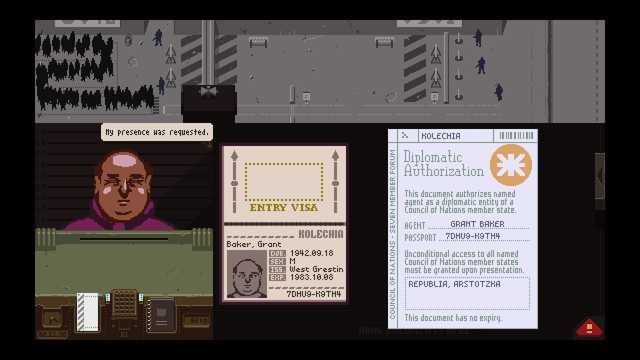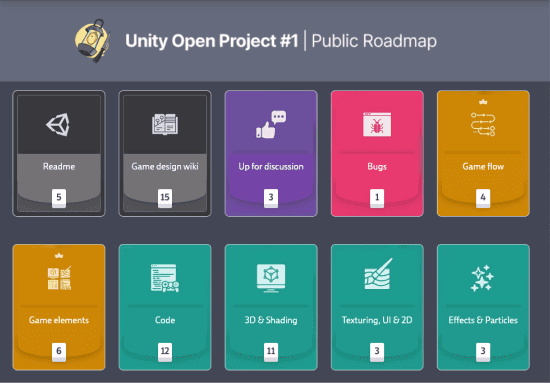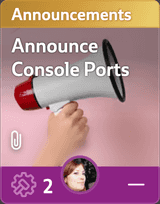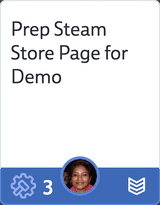
Riad is the product manager of Codecks. He is also the co-founder of indie games company Maschinen-Mensch and still believes that Street Fighter 2 is the most beautiful video game ever created. Coincidentally he also believes that Codecks is the best project management tool for game developers. Apparently he has been creating video games for over 14 years now and considers himself a productivity nerd: scrum, kanban, extreme programming, waterfall, seinfeld. He has tried it all.
Codecks is a project management tool inspired by collectible card games. Sounds interesting? Check out our homepage for more information.
Survival Guide for Early Access Game Developers
When I worked in AAA, the games I worked on were shrouded in secrecy. We worked on games until they were done. Apart from some focus tests, we were never really certain if the market was actually looking for our type of game. Had we made the right design choices? We would only know weeks after the game had gone gold.
It doesn’t have to be like that! Digital distribution has allowed a new wave of indie game developers to emerge. Now it enables a new way of developing and marketing games: Early Access is the transparent way of developing games. Here’s why I think that game developers and players should be excited about that.
We’re using the term “Early Access” here in the general sense of open game development, not tied to a specific store front or distribution model.
Why should you use Early Access?
Testing Game Market Viability
A lot of people can now make games! That is great because it means that a lot of voices get to share in this artistic medium. Yet making a living of games can be hard. Not just financially, but also mentally. Spending years on a brand new idea that you’re never certain that people will care about is taxing.
Open game development reduces some of that pressure by reducing the obsessive focus on a single release date and gives you a chance to get in touch with your potential customers months or even years in advance before you’re trying to sell your game. Already during pre-production, this can give you important insights if players out there are waiting for your game.
Some companies like Free Lives (they are also using Codecks btw 💜) or Double Fine even go as far as releasing prototypes of their games and only pursing games that already gain enough traction in a super early stage. When we worked on Curious Expedition 1 it was only after the game had gained some interest on Twitter that we decided to quit our old jobs and work on it full-time.
Community Play Testing
Most game devs will probably agree that it is really hard to objectively assess your own game after having spent a long time working on it. And when I say ‘hard’ I mean basically ‘impossible’. Things that appear obvious to you might be hard to understand for beginners. Nuisances that might not be bothering you might be infuriating to your players.
How often do you read game reviews that are pointing out obvious exploits and annoyances? Things that could have easily been fixed before getting all the negative press reviews if the team had only gotten the right feedback before release.
Fresh players give you new eyes. They can offer insights that your team can’t. They can make you aware of issues that you might have overlooked. Or make you double-down on the strengths of the game. (In Curious Expedition we ramped up the amount of famous historic people after a random appearance of Nikola Tesla in a concept shot gained surprising popularity on Twitter).
And that’s not even talking about how some genres are hard to playtest, even with a dedicated QA team; especially games that have lots of procedural rules or a multiplayer game mode. Never underestimate the ability of players to find exploits and overpowered winning strategies before you ever will.
Game Community Building
Building a strong community around a game is every game marketer’s dream. In the era of indiepocalypse and lots of games having trouble finding an audience, building up your own community that follows you from game to game might be your best shot.
Building a community rarely comes for free though. And once you gained it, how do you keep your community interested during the long stretches between game releases? Sharing your in-development game is a great way for rallying your fans and kindling conversations and connections in a way that is really hard of just a screenshot or forum post alone.
Why do players like Early Access?
Not every player likes to participate in the early game process and that is completely fine. These players will still be around once the game is fully released. The players that like to participate might do for various reasons:
- You’re working on a game in a specific genre or setting that they feel passionate about and they want to help in creating the best version of.
- They have been following your team and your journey and are rooting for your success because they like you and relate to you.
- They like to hang out in a like-minded community. You have built a player base that people like to associate with and that makes them feel welcome and appreciated.
- They are interested in the game development process itself. Maybe they even want to become a game developer themselve.
7 Tips for Early Access Development
Putting your game on Steam Early Access can be part of your open process, but it is nowhere all that you can do. Here is a list of tips that you can use for yourself.
-
Expectations for Steam Early Access games are quite high these days. If your game is still very unfinished you might want to consider releasing a free early prototype of your game outside of Steam first.
itch.io is a great place for doing that. We also had great success with using Discord Channel Stores to release the initial alphas of Curious Expedition 2 for free.
In my experience, there is no need to worry that fans won’t pick up the full game anymore once they have satisfied their initial curiosity. Even really successful games like Papers, Please and Dicey Dungeons released their initial versions completely for free. You can even still find them online on tigsource (Papers, Please) and itch.io (Dicey Dungeons).

-
Make a conscious decision about which community hub to focus on. The Steam forums are a natural fit for a lot of game developers. You are competing with a lot of other games and lots of activity on the platform though.
For Curious Expedition 2, we decided to make our Discord server our central community location with great success. Fans also had to join our server to play the free early alphas. The server now has close to 5,000 members.
You might also consider setting up your own forum instead. Indie Game Dev Strayfawn Studio did that and was able to build a strong community through it. See their GDC talk about the process.
Make sure that you provide a place where it is not just you talking to the community but where the community can converse between themselves. That will make it a community after all and not just a news outlet for you.
-
Provide a way for players to easily provide feedback and bug reports. And find ways for you to track that information. Having players write random chat lines or threads can become overwhelming quickly. We use Codecks’ Decky bot to funnel feedback easily into our project management. Its upvoting functionality is nice for identifying the most pressing issues quickly.
Games like Subnautica also provide a quick feedback report button from directly within the game.
-
Provide a roadmap about upcoming content and the planned scope of the game. That sets the expectations in terms of what the current game state is in. Wrong expectations can be damaging. They might be too high (unrealistic expectations and disappointment with the final game) or too low (misunderstanding placeholder art/content for the final polished version).
Make sure that your roadmap is easy to find (link it from your homepage) and persistent so that it won’t get buried under lots of other information. Sticky forum threads or wikis are also good places to start. Also, dev logs and blog entries help.
If you are using Codecks, you can also easily share your roadmap (or as much of your actual project design/task/bug list as you want) by using the open decks feature. Check our open decks gallery to discover great projects that are already being shared on Codecks. (You’ll find that even Unity3D is using it for sharing the roadmap of their Unity Open Project.)

-
Some game devs like to live stream their game development. Some examples are German indie game devs Backwoods Entertainment (💜) and Ludopium (💜) on their shared Twitch channel indiestrolche. Doing live content does not come naturally to everybody though.
Recorded videos can also be great for communicating. The early Prison Architect alpha update videos were something I always looked forward to and that made me excited to be part of early players of that hit game. We used a similar format for the alpha update videos for Curious Expedition 1.
-
Make your community a welcoming place and make sure it stays that way. That starts with yourself, appreciating input, independent of whether you agree with it or not, but also extends to the general community. Make the code of conduct clear to your community and act on it if needed or your players won’t feel safe and welcome in your community. For larger communities, the use of moderators is very likely to be needed.
-
Maintain creative supervision. Transparent game design does not mean completely handing off the decision duty to your community. After all, you are still the game developer and the one responsible for making the right decisions for the game. That includes having a strong creative vision and knowing when to stick to certain ideas even when the community can’t yet see the final destination. Realizing this should give you the liberty to read any conflicting feedback without jumping to defending your decision immediately and deflecting feedback right away. Stay humble and open.


